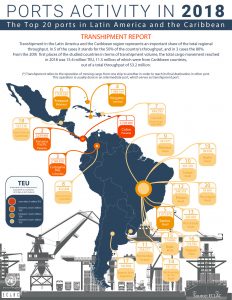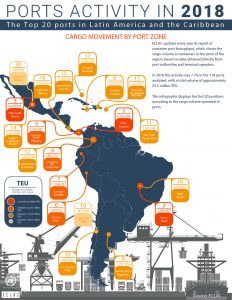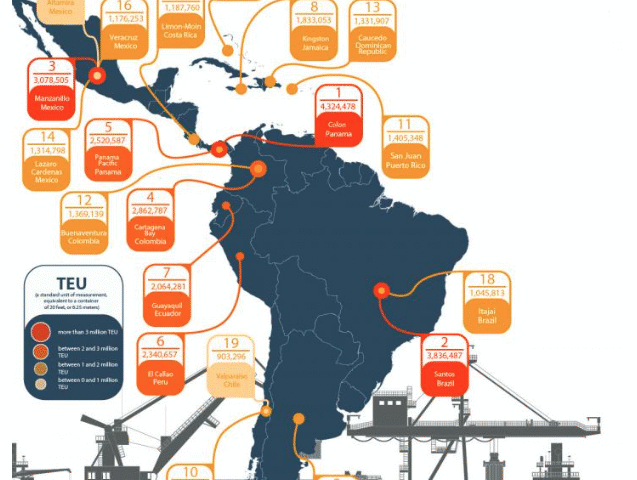 Container throughput in ports of Latin America and the Caribbean increased by 7.7% in 2018 in comparison with the previous year, according to Port Activity Report of Latin America and the Caribbean 2018 by ECLAC. This analysis is based on the performance of a sampling of 31 countries and 118 ports and port areas in the region.
Container throughput in ports of Latin America and the Caribbean increased by 7.7% in 2018 in comparison with the previous year, according to Port Activity Report of Latin America and the Caribbean 2018 by ECLAC. This analysis is based on the performance of a sampling of 31 countries and 118 ports and port areas in the region.
According to the data of the sampling compiled by ECLAC, in 2018 the East Coast of South America (ECSA) recorded a 12% increase in the activity of ports and port areas, measured in terms of volume. Meanwhile, the West Coast of South America (WCSA) continued with a slight upward trend, growing 7% in 2018, compared with the 6% seen between 2016 and 2017. The Caribbean showed 12% growth in total throughput, while Central America (without including Mexico) had more subtle growth of 7% only on the West Coast, since the East Coast essentially maintained the same activity levels as in 2017. The Gulf of Mexico area grew 8% versus 2017, and Pacific Mexico 11%. Panama, meanwhile, experienced growth on its Caribbean coast (11%) with regard to the country’s total throughput, while its Pacific coast registered a decline of -16%.













